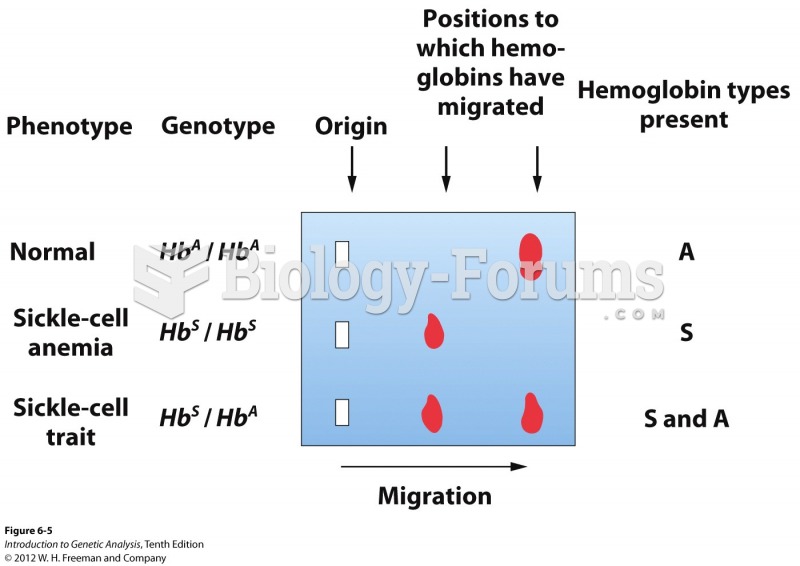|
|
|
Drying your hands with a paper towel will reduce the bacterial count on your hands by 45–60%.
When blood is deoxygenated and flowing back to the heart through the veins, it is dark reddish-blue in color. Blood in the arteries that is oxygenated and flowing out to the body is bright red. Whereas arterial blood comes out in spurts, venous blood flows.
Medication errors are three times higher among children and infants than with adults.
The Centers for Disease Control and Prevention has released reports detailing the deaths of infants (younger than 1 year of age) who died after being given cold and cough medications. This underscores the importance of educating parents that children younger than 2 years of age should never be given over-the-counter cold and cough medications without consulting their physicians.
Between 1999 and 2012, American adults with high total cholesterol decreased from 18.3% to 12.9%







